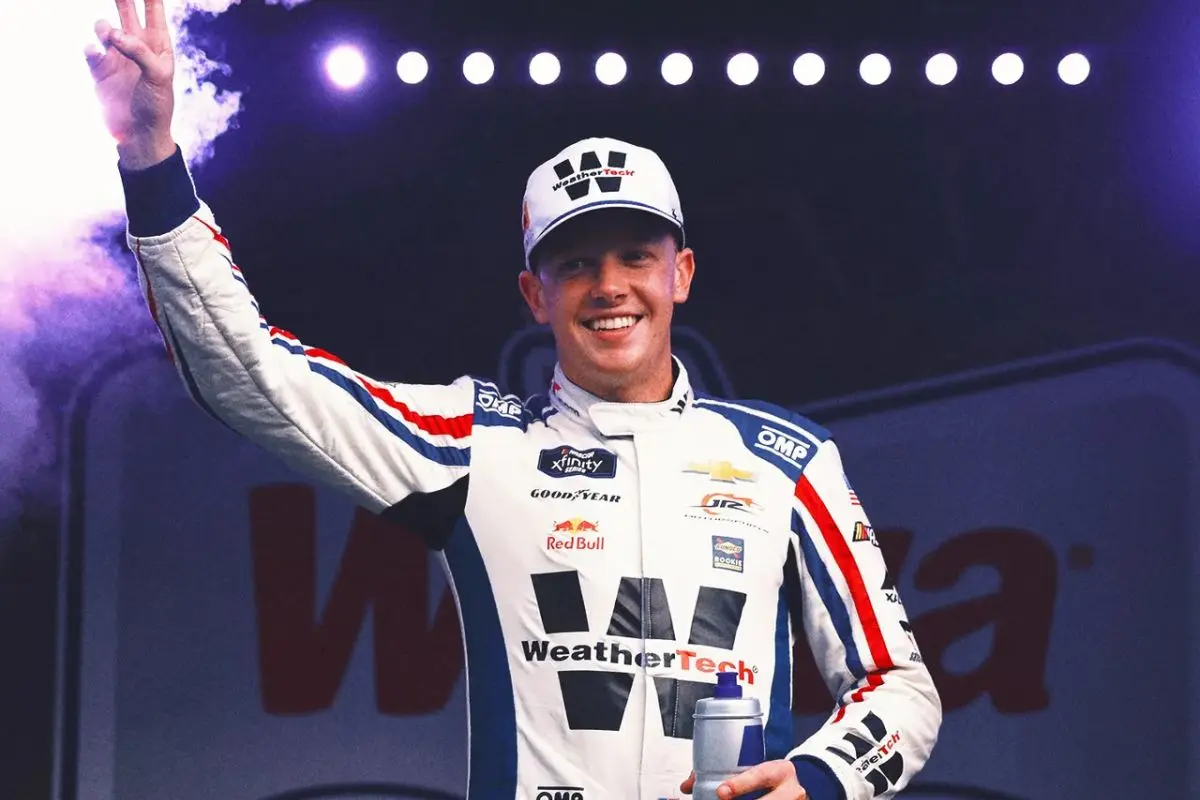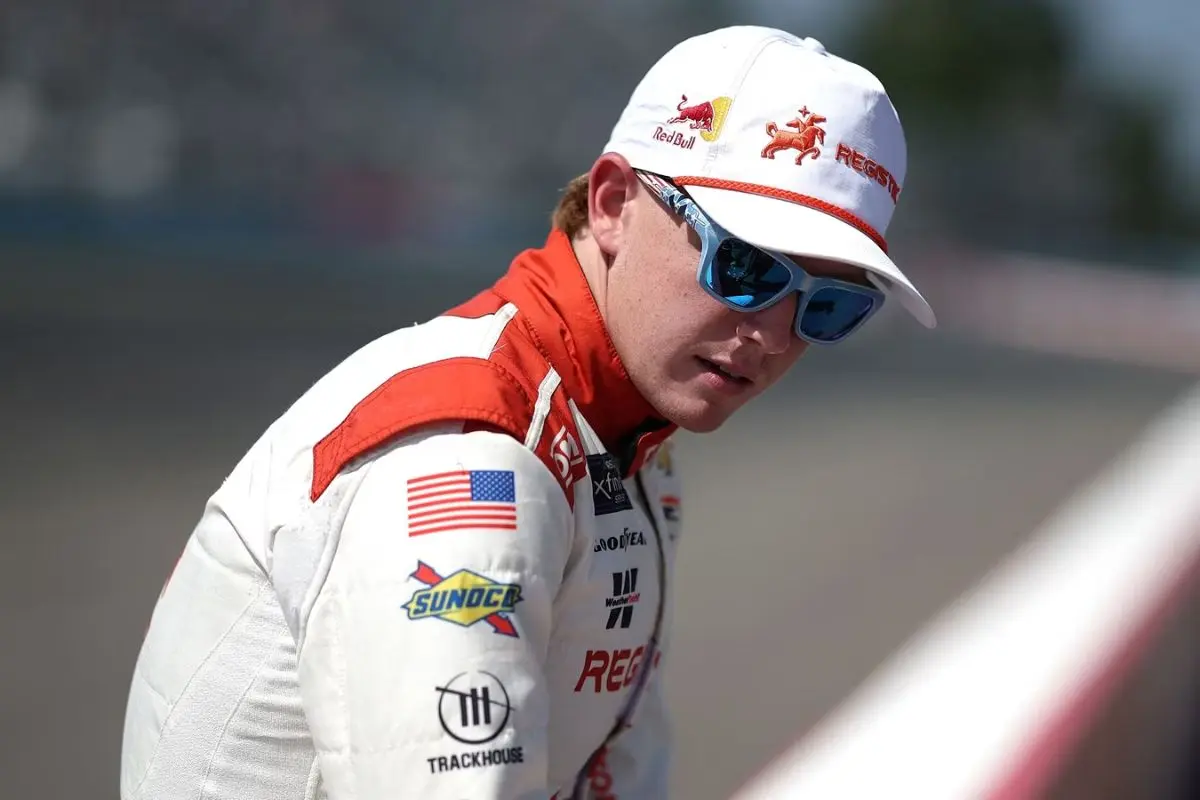Connor Zilisch‘s nine victories in the 2025 Xfinity Series have prompted discussions regarding NASCAR’s recent rule changes aimed at nurturing talent development. Critics, including Dale Earnhardt Jr., argue these changes diminish competition, contrasting Zilisch’s success with the challenging environment created by Kyle Busch‘s era. While Zilisch’s achievements highlight emerging drivers’ potential, the new rules raise questions about future competitive integrity and opportunities for nascent talent. Insights into this evolving landscape reveal deeper implications for NASCAR’s growth.
Key Takeaways
- Connor Zilisch’s nine wins in the 2025 Xfinity Series highlight his dominance and raise questions about the competitive balance in NASCAR.
- Dale Earnhardt Jr. critiques the current landscape, suggesting reduced competition from elite Cup drivers benefits rising talents like Zilisch.
- The unrestricted participation of Cup drivers historically limited opportunities for emerging talents, prompting NASCAR to implement new rules since 2017.
- Recent rule changes in NASCAR aim to nurture talent but may dilute the competitive integrity of the Xfinity Series as a proving ground.
- Zilisch’s impressive performance reignites discussions about the effectiveness of new regulations in fostering driver development and maintaining competitiveness.
Connor Zilisch’s Breakout Season and Comparisons to Kyle Busch
As Connor Zilisch continues to dominate the 2025 Xfinity Series, his impressive performance has inevitably drawn comparisons to Kyle Busch, particularly regarding their respective paths to success.
With nine wins in 25 races, including a remarkable seven victories in his last eight outings, Zilisch’s talent is undeniable. His current record pursuit places him just four wins shy of Busch’s single-season benchmark of 13, a feat that players in modern competition deem notable.
Zilisch’s nine wins in 25 races highlight his dominance, as he chases Busch’s single-season record of 13 victories.
Season analysis reveals that Zilisch’s success may stem from a more streamlined pathway compared to Busch’s era, where top-tier Cup talent frequently competed.
This evolution in NASCAR dynamics raises intriguing questions about Busch’s legacy and the implications for future drivers like Zilisch, who navigate an evolving landscape.

Dale Jr. Spotlights Busch’s Dominance and Modern Xfinity Fields
While reflecting on the current dynamics of the Xfinity Series, Dale Earnhardt Jr. highlights the striking contrast between Kyle Busch’s era and today’s competition landscape. He emphasizes Busch’s legacy, noting how his dominance forced series regulars to enhance their performance amid fierce competition.
The evolution of the Xfinity Series, however, has altered this competitive balance, allowing rising talents like Connor Zilisch to shine without the persistent challenge of elite Cup drivers. Dale Jr. critiques this shift, arguing it undermines race strategy and driver development, as standout performances become less intimidating.
Busch’s Success and Its Impact on Competition
Kyle Busch’s unmatched success in the Xfinity Series has greatly shaped the competitive landscape, raising questions about the balance between established stars and emerging talent. His dominance, exemplified by 13 wins in 2010, posed notable Xfinity challenges for competitors like Dale Jr. and others. The financial implications were evident, with a potential $200,000 to $400,000 loss per season for teams unable to compete for victories. The unrestricted participation of Cup drivers not only stifled driver development but also skewed competitive balance, prompting NASCAR to limit Cup entries in 2017. This shift aimed to nurture a more equitable environment for developing talent, such as Connor Zilisch.
| Key Aspect | Description |
|---|---|
| Busch Dominance | 13 wins in 2010, overshadowing rivals |
| Competitive Balance | Established stars vs. emerging talent |
| Xfinity Challenges | Financial losses for non-winning teams |
| Driver Development | Limited opportunities for new drivers |
| Financial Implications | $200,000 – $400,000 swing per season |

Impact of Rules Change and Dale Jr.’s Bristol Future
NASCAR’s recent rule changes, aimed at nurturing new talent in the Xfinity Series, have sparked debate over their long-term impact on the sport’s competitive integrity.
While these modifications promise to raise young drivers, they also risk diluting the proving ground that has historically defined racing excellence.
Dale Earnhardt Jr.’s reflections on a potential Bristol return shed light on this tension.
Despite the charm of racing nostalgia at a track where he once succeeded, Jr. remains focused on competitive satisfaction rather than a return to the cockpit.
His straightforward thoughts reveal a driver mindset shaped by past experiences, prioritizing personal fulfillment over competitive aspirations.
This shift highlights the evolving landscape of NASCAR, where the balance between tradition and innovation continues to be tested.
Dale Jr.’s Contentment and Focus on Broadcasting
Contentment often shapes the decisions of retired athletes, and for Dale Earnhardt Jr., this sentiment resonates profoundly as he welcomes a new chapter in his career.
Embracing a broadcasting career, he prioritizes an ownership mentality through JR Motorsports, where he flourishes in his mentorship role while allowing emerging talents like Connor Zilisch to pursue on-track risks.
At 50, Dale Jr. has firmly stated that he has “no plans to come back,” a decision reflecting his focus on future plans outside the cockpit.
While he acknowledges the potential for reconsideration, his commitment to broadcasting and nurturing the next generation remains resolute, demonstrating a tactical shift from racing glory to cultivating it in others.

News In Brief: Connor Zilisch’s Record Sparks Debate Over NASCAR’s New Rules
Connor Zilisch’s impressive performance has ignited a necessary discussion surrounding NASCAR’s evolving regulations and their implications for competition. By drawing parallels to Kyle Busch’s dominance, industry veterans like Dale Earnhardt Jr. highlight the challenges faced by new talent amidst seasoned competitors. As NASCAR navigates these changes, the balance between nurturing emerging drivers and maintaining competitive integrity remains essential. Ultimately, Zilisch’s breakout season may serve as both a catalyst for rule reevaluation and a harbinger of the sport’s future dynamics.
ALSO READ: Connor Zilisch Leads NASCAR Xfinity Series Odds as Playoffs Begin
